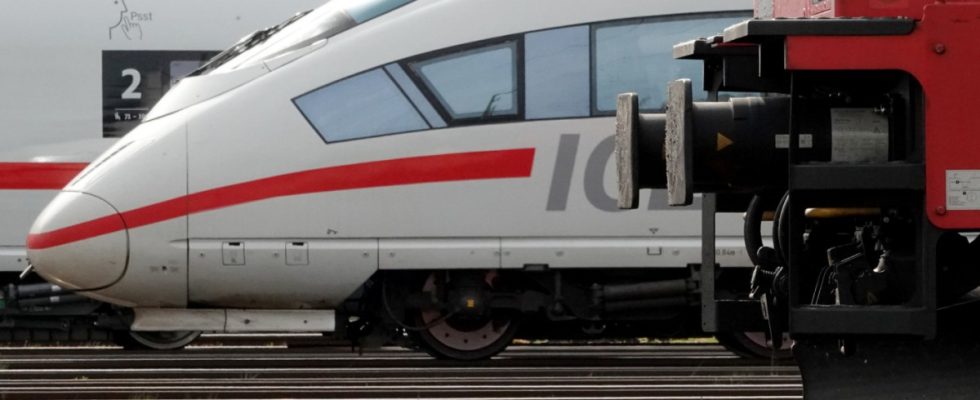Travelers can travel by train unhindered for the time being. The EVG union accepts the railway company’s offer to settle the deadlocked wage negotiations. This means that a warning strike planned for next Tuesday will not take place. There are no labor disputes during arbitration proceedings. Even until then, the EVG does not want to go on strike.
Deutsche Bahn had proposed such a procedure with neutral arbitrators to prevent a new industrial dispute. “This is intended to settle the collective bargaining conflict without further strikes during the holiday season,” said the group. For example, there was arbitration in spring in the collective bargaining round in the public sector for a good two million employees. Employers and unions had gotten caught up in each other there for weeks, as they do now at Deutsche Bahn. The wage negotiations ended with the arbitrator’s decision being largely accepted, without further strikes.
“After the negotiations failed, we declared that we would not refuse an arbitration procedure. Now we are keeping our word,” said EVG negotiator Kristian Loroch. However, strikes are not off the table in this round of wage negotiations, which has been going on for months. Union members will vote on the outcome of the arbitration. If they reject it, they can go on strike for days after a vote for indefinite labor disputes. The union is expressly holding on to a ballot vote on indefinite strikes.
The EVG trade union paralyzed rail traffic with two warning strikes in March and April. At that time, there were train cancellations and delays nationwide for one day each. In May, a strike planned to last more than two days was only stopped at the last minute by a labor court settlement after the company had filed a lawsuit.
The union broke off negotiations for higher wages last week. She and the train were no longer very far apart. 140 pages of collective agreement had already been negotiated. The union originally demanded twelve percent more wages, but at least 650 euros a month, because of the high inflation and low salary increases in the Corona years. The railways had recently significantly improved their offer, which was previously eight to twelve percent more wages plus an inflation premium of 2850 euros. For the first time, she agreed to a minimum increase, which is particularly important to the union because low-paid employees, who are particularly hard hit by inflation, will benefit from it. According to the information, the railway offers a minimum increase of 400 euros.
The EVG has already concluded a collective agreement with the regional railway company Transdev, which it praises as “pioneering”. There is a minimum increase of 420 euros plus 1400 euros inflation premium, the collective agreement runs for 21 months. This is not far from the last offer from the railway company.
The EVG is particularly upset with the fact that Deutsche Bahn wants to enforce a term of the collective agreement of 27 months. In addition, the first installment of the wage increase should not come until December and must be higher than the 200 euros that the group is offering. “In order to come to a conclusion, the railways have to top up properly,” said union boss Martin Burkert.
One reason for the EVG’s hesitation could be the competition with the train drivers’ union GDL, which has been aggressively trying to poach members for years. GDL boss Claus Weselsky describes the EVG’s wage agreements as too low. Weselsky recently asked for 555 euros more per month and an inflation premium of 3,000 euros for the pay round for train drivers. Weselsky also wants to achieve a reduction in weekly working hours from 38 to 35 hours per week with full wage compensation. Thus, the total requirement of the GDL is significantly higher than the requirements of the EVG.

